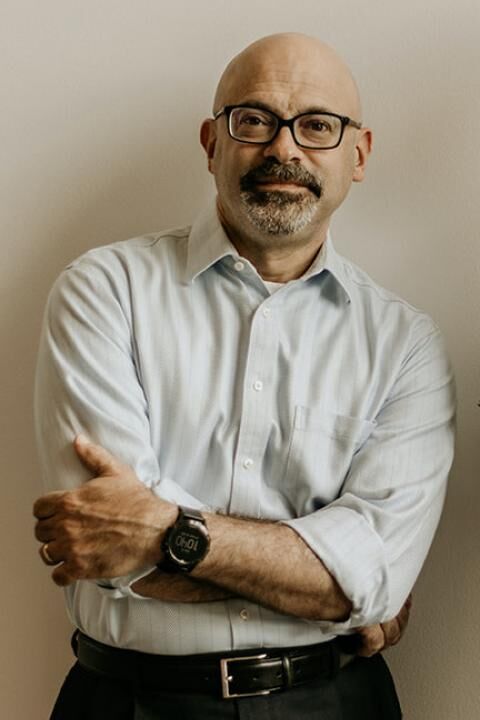Art Without Limits viewed worldwide
Courtesy of Kent State University
Nick Petrella, an art Professor at Kent State and the co-creator of the event.
Having a flexible set of skills is crucial to be successful in your career, said Silas Hite, professional musical composer and performer, during his virtual art entrepreneur session on Feb. 4.
“If your goal is to… pay your bills, save for retirement, develop a career and a following, you may need to expand your skill set to support these goals,” said Hite. “And of course that applies to any artist.”
Hite was one of seven speakers who gave presentations on becoming successful art entrepreneurs during the art entrepreneur event, Art Without Limits, held virtually from 9 a.m. to 5 p.m.
The event focused on how students can build connections to get their art out in the world. It also gave a focus on how to broaden the viewer’s horizons and give them a skill set to be able to enter the complicated world of art entrepreneurship.
Presenters such as Lauren Luna talked more about the making connections side. She gave viewers tips on how to get their work in the spotlight.
“You need to make sure that you are constantly applying for new shows, applying for new gigs,” said Luna. “You have to be out there constantly.”
The trickiest part about entrepreneurship is how flexible it can be, not just in how it works but how it is defined, said Andy Heise, an assistant professor at the Bloch School of Management in Missouri.
“There is no one agreed upon definition of entrepreneurship, which is why it’s awesome and why it’s also difficult,” said Heise.
The event was a joint idea by Heise and Nick Petrella, a Kent State arts professor, who wanted to give people a more concrete definition of art entrepreneurship.
Petrella and Heise discussed “Making Art Work,” their podcast about art entrepreneurship. The podcast started in 2020 and since then they have interviewed hundreds of artists about entrepreneurship and what has made each artist successful.
“Our mission really is how entrepreneurs in the arts are aligning their artistry, passion and vision and are ‘making art work’ for them,” said Petrella.
Within the first week of their podcast being released they were in the top 50 percent of all podcasts downloaded in the first seven days of release.
“There is a need or at least a desire to learn and have this information,” said Petrella.
The event, which was made entirely virtual, suffered few to no bugs and errors because of the fantastic job Kent State’s tele production team did, said Petrella.
The conference was viewed by more than 150 people, not just in the U.S., but in eight countries including Brazil, Colombia, Ireland, the UK and Jamaica, said Petrella.
The College of the Arts will post recordings of the session online soon for those who could not attend.
Benjamin Weaver is a reporter. Contact him at [email protected].



